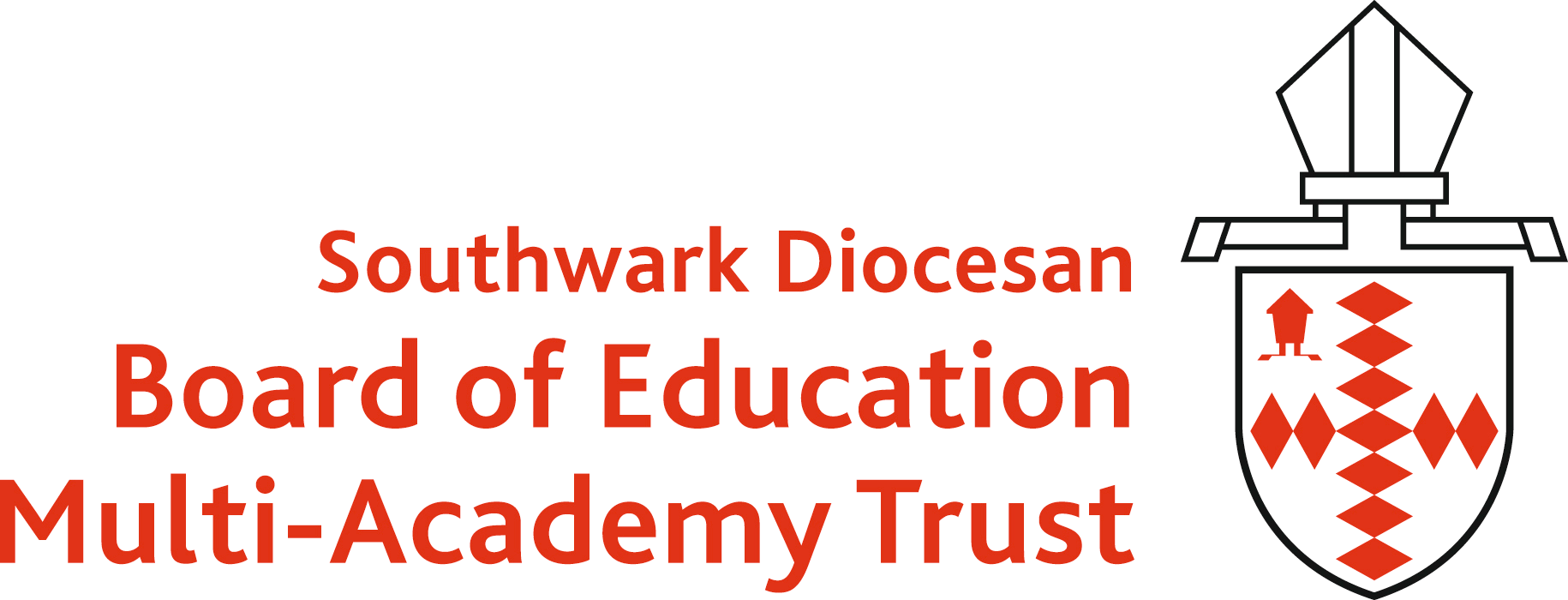Religious Education at St Luke's
St. Luke’s is a Church of England Primary School that dedicates itself to providing a Christian environment that offers all children the highest quality of teaching and learning opportunities.
Religious Education has a high profile in school life with lessons providing fully for the needs of all learners
At St Luke’s, we aim to ensure that Religious Education will:
Provoke challenging questions about the meaning and purpose of life, beliefs, the self, issues of right and wrong and what it means to be human. It develops pupils’ knowledge and understanding of Christianity, other principal religions and religious traditions that examine these questions, fostering personal reflection and spiritual development.
Encourage pupils to explore their own beliefs (whether they are religious or non-religious), in the light of what they learn, as they examine issues of religious belief and faith and how these impact on personal, institutional and social ethics; and to express their responses.
- This also builds resilience to anti-democratic or extremist narratives.
- Enable pupils to build their sense of identity and belonging, which helps them flourish within their community and as citizens in a diverse society.
- Teach pupils to develop respect for others,including people with different faiths and beliefs, and helps to challenge prejudice.
- Prompt pupils to consider their responsibilities to themselves and to others, and to explore how they might contribute to their community and to wider society. It encourages empathy, generosity and compassion.
- Develop a sense of awe and wonder and mystery.
year 3 re week presentaion pdf.pdf
The school’s approach to teaching R.E
The school uses the SDBE RE Syllabus across the school, enhancing the units to fit the needs of the pupils and nature of the school. Please see curriculum map below. RE is taught by enthusiastic & motivated teachers who inspire the learners.
Pupils develop a clear understanding of Christianity and a broad range of religious beliefs. The pupils use their skills of enquiry, analysis, interpretation, reflection and evaluation to understand the impact of religion on believers.
Pupils have a thorough knowledge and sound understanding of the Christian faith through a wide range of learning opportunities, such as weekly Religious Education lessons, daily acts of collective worship, church services and educational visits. Pupils are able to make real links between the beliefs, practices and value systems of the Christian, Jewish, Muslim, Sikh, Buddhist and Hindu faith.
RE Curriculum Documents
At St. Luke’s, we follow the Southwark Diocese Syllabus for Religious Education. click here for an overview of what is taught across both Key Stages.
For a more detailed look at what is taught across the school in Religious Education, click here to view our whole school RE curriculum map.
Religious Education Policy 2017 - Click here to view our Policy
In order to make Religious Education a lively, active subject, we employ a variety of teaching methods including art, music, discussion, the development of thinking skills, drama, the use of artefacts, pictures, stories and the use of periods of stillness and reflection. Where possible, we want our pupils to have opportunities to encounter local faith communities through visits to local places of worship or visits from members of local faith communities.
What Is Spirituality?
It is very difficult to put into words what ‘spirituality’ actually is because it is a very personal experience. It differs from person to person, and often spirituality changes within people during their lifetime. Spirituality is not the same as having a religion or faith; a person can be spiritual without having a particular faith.
Some definitions include:
“Ones inner being. Our inner self where we can find resources within that come from a greater source I.E. God. Our soul.”
“It is first of all the certainty to turn one’s life into a more beautiful, harmonious and happy one.”
“Spirituality may refer to almost any kind of activity through which a person seeks meaning, especially a "search for the sacred." It may also refer to personal growth, blissful experience, or an encounter with one's own ‘inner dimension’."
As a school, we have defined spirituality as:
“Spirituality is not something we can see; it is something we feel inside ourselves. It is about awe and wonder, asking questions, inspiration and being aware of something ‘bigger’ outside of ourselves.”
The language we use to define spirituality is not child-friendly, so when talking to children about it we will refer to:
A sense of awe and wonder
-
Care for nature and living things
-
Wanting to love and to be loved by people
Awe and Wonder
Children are born inquisitive, and it is our duty to nurture this natural curiosity and guide them towards looking at the world and noticing, with awe and wonder, the natural and man-made delights all around us. We want to encourage them to ask ‘big questions’ about life, religion, nature, science and any other area of fascination.
-
Caring for Nature and Living Things
We provide many opportunities for children to learn about nature and the role they play in protecting our world. As a Church School, this is especially important. Through science and topic work, children learn about the world and how they can care for living things.
Love
We are a very caring school and pride ourselves on our ethos of family. Through our Christian Values, we teach children to care for friends, family and the community. Indeed, our Curriculum for Life Skills and RE curriculums include learning about those we love and who love us. We hold annual Mother’s Day and Father’s Day events in school to celebrate the special people in our children’s lives. We also offer other family events throughout the school year so children can learn with their family in school.
-
How is Spirtituality Nurtured?
Children’s spiritual development is fostered through all aspects of our provision. It is about the relationships and the values that we consider to be important, as well as the development of knowledge, concepts, skills and attitudes. We give children opportunities to:
-
Express personal beliefs and compare views with others, sharing feelings and opinions through discussions and stories.
- Begin to develop their own system of beliefs which may or may not include religious beliefs.
-
Experience a love of learning through rewarding their enthusiasm and by encouraging exploratory play and learning.
-
Reflect upon the world around them and show a sense of awe and wonder towards aspects of the natural world or human achievement.
-
Reflect on the situations of others through role play, stories.
-
Experience a range of stories, music, art, drama and dance
Teaching Opportunities and Strategies
Liz Mills from The Stapleford Centre, a Christian charity fostering Christian engagement in education, has identified 3 ways that schools can provide opportunities for spiritual development:
WINDOWS: giving children opportunities to become aware of the world in new ways; to wonder about life's 'Wow!s' (things that are amazing) and 'Oh!s' (things that bring us up short). In this children are learning about life in all its fullness.
MIRRORS: giving children opportunities to reflect on their experiences; to meditate on life's big questions and to consider some possible answers. In this they are learning from life by exploring their own insights and perspectives and those of others.
DOORS: giving children opportunities to respond to all of this; to do something creative as a means of expressing, applying and further developing their thoughts and convictions. In this they are learning to live by putting into action what they are coming to believe and value
We provide WINDOWS throughout our curriculum. We will be having specific lessons with an awe and wonder focus with a variety of stimuli, including photos, videos, music current events and real-life stories.
As a school we place high value on thinking skills. We use De Bono’s Thinking Hats, Tony Ryan’s Thinkers Keys and Philosophy 4 Children. These offer a variety of MIRRORS for the children to reflect on the world in different, deeper ways. It allows them to ask and discuss bigger questions and consider their own ideas and beliefs. Through high-quality RE lessons, children are consistently challenged to reflect on their learning about religion to help them learn from religion, regardless of whether they have a specific faith.
Children at our school often identify DOORS for themselves. They may hear of a local issue or an international event and request to take action, through fund raising and raising awareness. We also work with the local community through litter picking, making posters for display in the village, local fundraising and other activities. We also take part in Comic Relief, Children in Need, and Operation: Christmas Child, as well as identifying other charities to support during the year.
We will be having a focus on spirituality within our lessons to further enhance the spiritual development of our children.
What is the Role of the School Community?
All members of the school community have a responsibility for helping to nurture children’s spiritual development.
School staff can do this through:
-
Establishing and maintaining a partnership between pupils, parents and staff; recognising and respecting the faith background of the children and their families;
-
Taking part in, and supporting, collective acts of worship;
-
Being good role models in their conduct towards other members of the community;
-
Promoting an attitude of respect for other people and for others’ views;
-
Nurturing consideration for and generosity towards others.
-
Drawing on the experiences of pupils and their families during religious education lessons and beyond;
-
Recognising and being constantly aware of the needs and backgrounds of each individual pupil;
-
Being willing to develop their own knowledge and understanding of the Christian faith and the faiths of others;
-
Having a positive attitude to the value of spiritual education.
Pupils can do this through:
-
Taking an active part in acts of collective worship;
-
Participating in activities which promote the skills allowing them to engage in examination of and reflection upon religious belief and practice;
-
Conducting themselves towards others considerately, in line with the code of conduct;
-
Respecting the views and beliefs of others.
Parents can help through:
-
Adopting a positive attitude to the value of spiritual education;
-
Supporting the school’s Christian ethos and acts of community worship such as assemblies and church services;
-
Respecting the views and beliefs of others.




